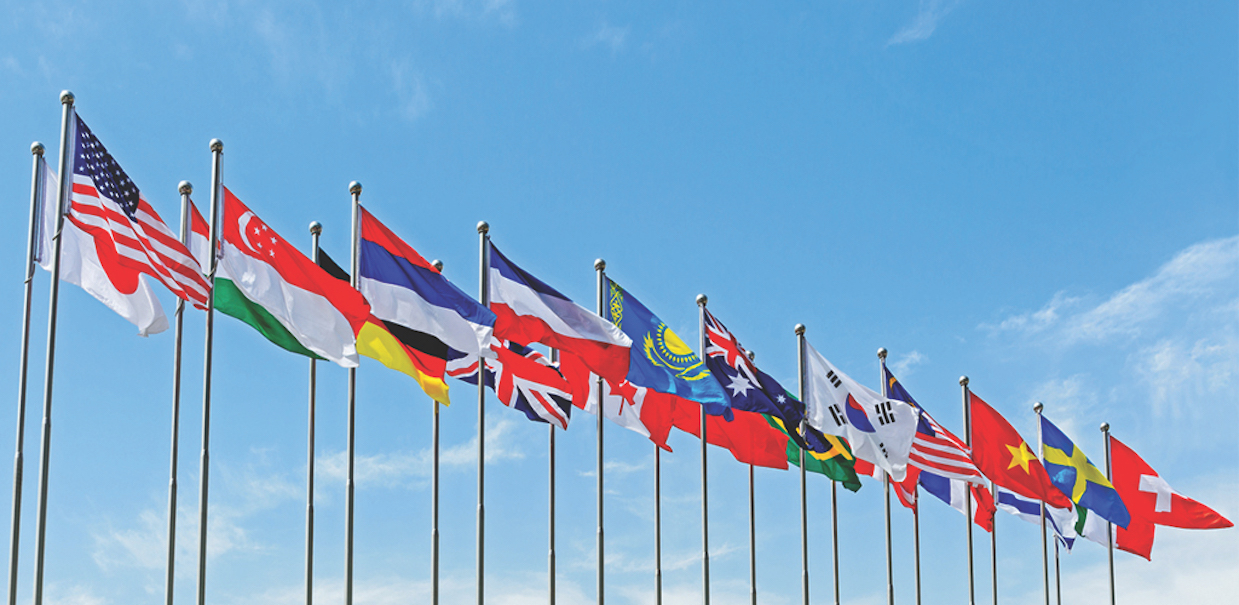A decade of the Ruggie Principles: World events and looming legislation are forcing investors to step up on human rights

RI’s human rights specialist Gina Gambetta reflects on recent developments on the 10th anniversary of the UN Guiding Principles on Business and Human Rights
June marks 10 years since the UN Human Rights Council unanimously endorsed the Guiding Principles on Business and Human Rights (UNGPs), known by many as the ‘Ruggie Principles’ – in honour of Harvard academic John Ruggie, who oversaw their creation.
The UNGPs, which are a set of guidelines for States and companies to prevent, address and remedy human rights abuses committed in business operations, have provided a centre of gravity for investor discussion on human rights over the past decade, and are due to underpin a number of major new rules being developed across Europe.
The EU’s Sustainable Corporate Governance Directive, for example, looks set to introduce mandatory human rights and environmental due diligence requirements across the bloc. The proposals currently cover Limited Liability Companies, but European Parliament has approved plans to roll them out to all corporations operating in the EU internal market, including banks and investors.
Directives (as opposed to regulations) allow EU Member States some freedom to decide how they implement rules in their own jurisdictions, and some countries are already coming up with national laws on human rights due diligence that could satisfy – or even influence – the EU requirements.
While France has expected companies to address human rights violations in their supply chains since 2017 through a Duty of Vigilance Law, last month saw Germany’s parliament adopt a Supply Chain Act, which will apply to companies with 3,000+ employees from 2023, expanding to those with more than 1,000 staff by 2024.
The Netherlands’ Bill for Responsible and Sustainable International Business Conduct will have a much lower threshold: it’s targeting companies with 250+ employees, or turnover of more than €40m. Crucially, the Bill – which is still under consideration – aims to include administrative, civil and criminal liability and enforcement.
(For more on due diligence in supply chains, check out last week’s panel on the topic at RI Europe where investor action on human rights was discussed at length.)
Two sets of research this month by the Working Group on Business and Human Rights concluded that, although there has been strong uptake of the UNGPs, as well as increased investor engagement and shareholder voting on human rights, “the rise of mandatory measures [by policymakers] will undoubtedly accelerate both uptake and progress”.
The studies, which offers a series of recommendations on promoting the Principles over the next 10 years, calls on governments to “integrate respect for human rights into the mandate, operations and investment activities of institutions involved in the issuance and management of State pension funds, sovereign wealth bonds and development finance”.
Institutional investors should also require their boards of directors to commit to honouring the UNGPs across their own operations and all investment activities, the report said.
While this level of commitment is still rare, investors are becoming more vocal about human rights, with recent events like Covid-19 and the Black Lives Matter movement throwing the issue into sharper focus in Europe and North America.
Just last week, UK pension funds and finance bodies started pushing for the creation of a “TCFD for social risks”. The calls came as members of the £7tn Find It, Fix It, Prevent It investor initiative, led by UK asset manager CCLA, began lobbying data providers to incorporate modern slavery into ESG ratings. The group also said it would commission “a new rating tool” to help investors tackle the issue.
This AGM season has seen a number of proposals at major banks and investors on racial equity and the treatment of workers during the pandemic (for more on how investors voted on ‘social’ resolutions, see today’s analysis here).
And there has been a flurry of investor activity centred on human rights and geopolitics. Nearly 60 institutional investors are seeking to address “egregious human rights risks” in their portfolios from potential ties to the Xinjiang region of China, where there has been growing controversy surrounding the human rights abuses of Uyghur Muslims. Earlier this month, following February’s military coup in Myanmar, 77 investors – led by Norway’s Storebrand Asset Management, US-based Domini Impact Investments and advocacy group Heartland Initiative – asked firms to outline their business activities in the country and address any potential human rights impacts.
Millions of dollars have been pulled out of companies linked to human rights issues in China, Belarus, Myanmar and Israel, too – a trend led by asset owners in Northern Europe.
Against this backdrop, we’re asking for your views on the state of play for human and labour rights. To tell us whether you think these are material risks for investors, and what the financial world needs to tackle the ‘S’ in ESG, please fill in our survey here. You can remain anonymous and we will publish the results over the summer.